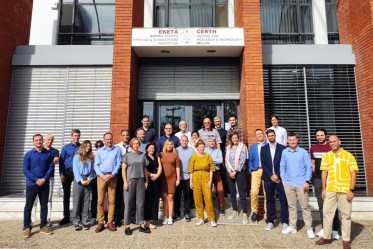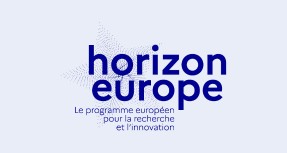Tools to Detect Persistant Pollutants in Soil
The Analysis and Processes Group (GA&P), led by Maxime Pontié, is taking part in the E-SPFdigit European research project on polluted soils. The Anjou research team, strengthened by the expertise of two postdoctoral students — Malak Dia and Adil Ait-Yazza — has a particular interest in PFAS.

Members from the 18 patners of the European research consortium met from 8 to 9 October 2024 in Thessaloniki (Greece) to launch the E-SPFdigit project.Funded under the European Commission's Horizon Europe call for projects, E-SPFdigit (Emergent Soil, Plant, and Food onsite digital services on chemical and biological contaminants) aims to enhance the quality of soils contaminated by chemical and microbiological pollutants. Launched in October 2024 for a period of 3 years, the project plans to experiment with new digital tools in situ, in wine-growing and horticultural areas or in contaminated zones (near mines, industries, motorways, etc.). Coordinated by the Hellas Research and Technology Centre (CERTH) in Greece, it involves 18 partners, including the University of Angers.
Maxime Pontié, professor at the Faculty of Science at UA, and his team from the Analysis and Processes Group (GA&P) have been given the task of developing innovative solutions for the on-site analysis of soils contaminated by perfluoroalkyl compounds (PFAS), also known as the "forever pollutants".
The work carried out in Angers will initially focus on developing a complete laboratory analytical chain for the 'conventional' analysis of PFAS in two soils (one from the city of Volos in Greece, the other from Murcia in Spain). In a second phase, this analytical chain, combined with a sampling robot and a drone, will be miniaturised in order to adapt it to field conditions for practical use in the field.
Remote transmission
"We aim to develop an analytical platform incorporating sensors that are capable of transmitting electrochemical signals remotely, while exploring pre-concentration processes to optimise analytical performance," explains Maxime Pontié.
Building on the progress of another European project, iMERMAID — which focuses on the Mediterranean and in which GA&P has been involved since June 2023 — this project will adapt electrochemical techniques initially designed for detecting PFAS in water to the analysis of soil. A comprehensive review of the scientific literature on these compounds will support the identification of the most effective analytical methods, with a particular focus on electrochemical approaches, to achieve optimal performance.
"This ambitious project is part of a broader drive for innovation and value creation, reinforcing the University of Angers' position as a key player in environmental research," says Maxime Pontié enthusiastically.

